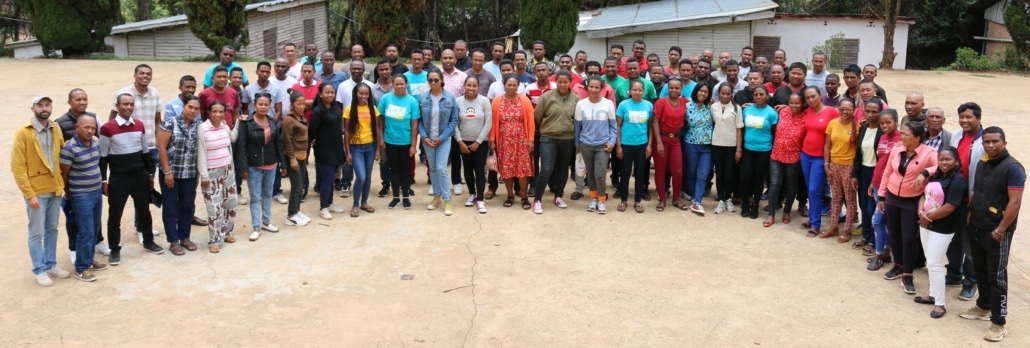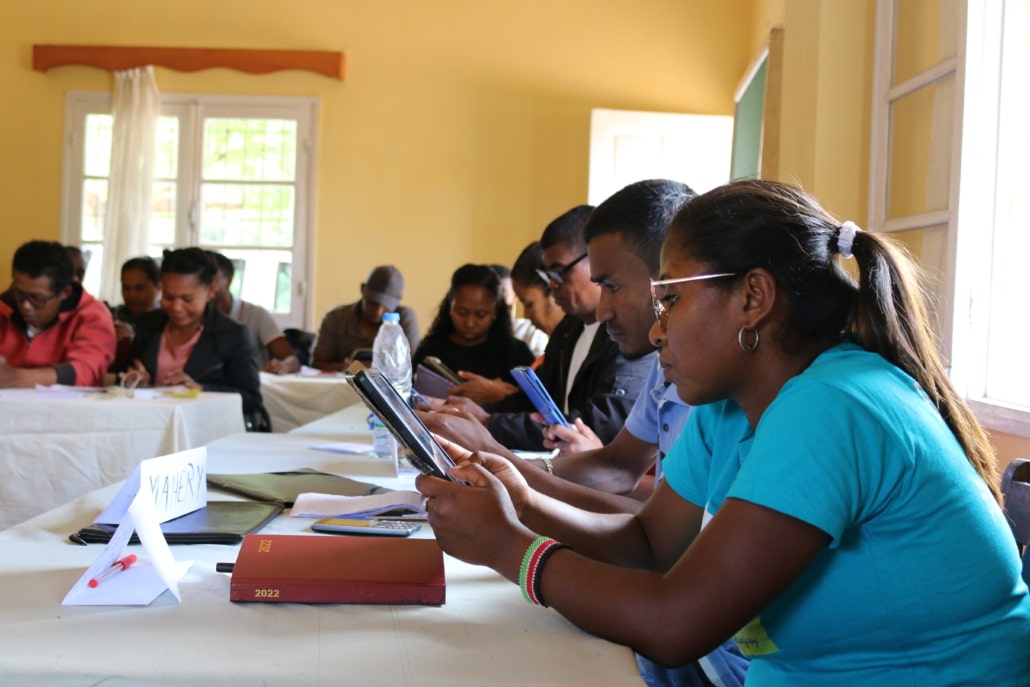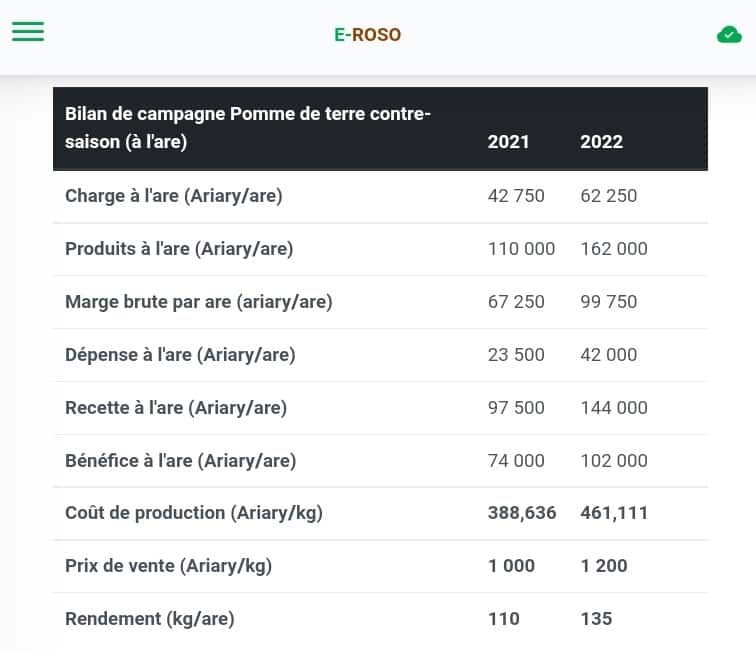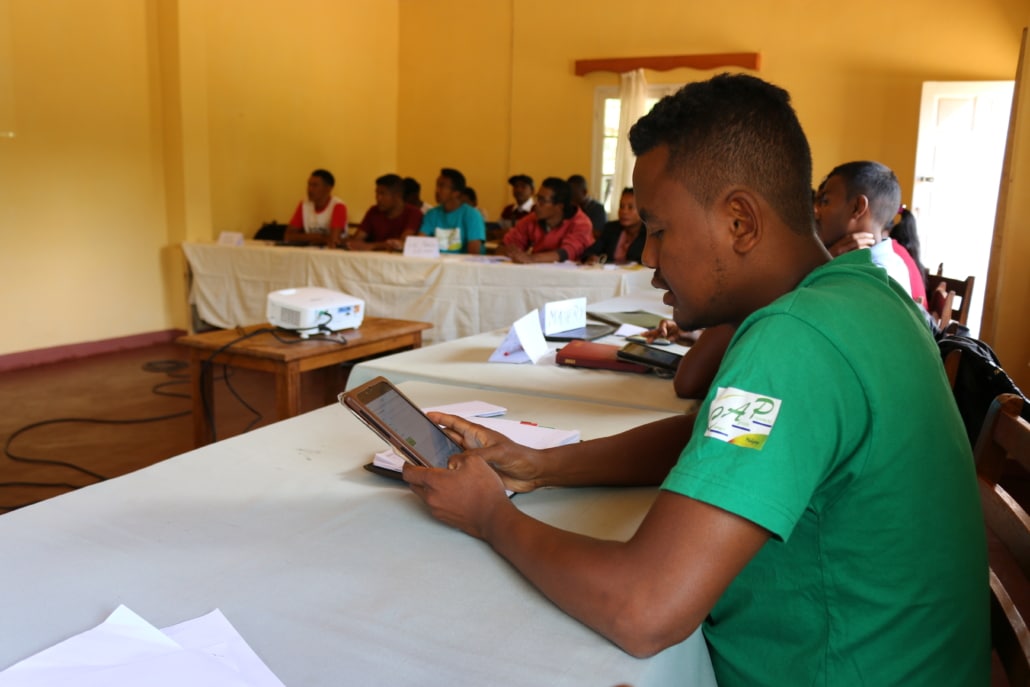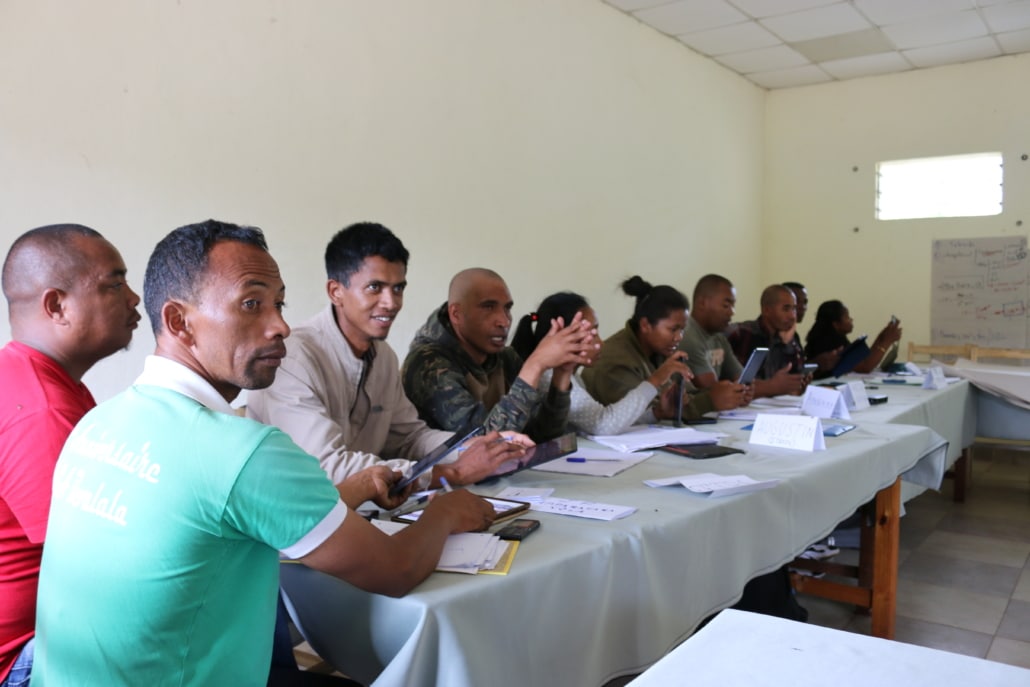From 21 to 25 November 2022, 84 advisors from the Fifata group in Madagascar received training about technical and economic analysis and use of the new e-roso advisory tool. It was developed in collaboration with Cirad to better support the development of farms and the professionalization of farmers’ organizations.
History
In Malagasy e-roso means to move forward, to develop… This is the ambition of the Fifata group, supported by Fert, which has been developing a local agricultural advisory system since 2004. In nearly 20 years, advisory services have made great progress: development of a national training programme for advisors, creation of the Cap Malagasy agricultural advisory organization, deployment of advisory services in 10 regions, etc.
Although the effects of agricultural advice have been demonstrated, advisory practices are heterogeneous and the use of technical and economic references remains limited.
In addition, producers confirm a growing interest in a technical/economic balance in advice. This is what led Fert and the Fifata group to develop a computer tool with the expertise of Cirad and a specialised computer scientist. This is how the e-roso tool was developed to better coordinate and disseminate advisory practices, mobilise references (decision support, creation of farm and sector references, communication) and strengthen farmers’ management. This project, which lasted several months, led to the training of the 84 advisers of the Fifata group in order to ensure that they could use e-roso properly.
Focus on the e-roso tool
The e-roso tool, available as a web and Android application, allows the recording and analysis of members’ technical and economic data and their immediate use for :
- individual and collective advice in the field (decision support, campaign review, group meetings)
- the production of local, regional and national references (monitoring of production costs, yields and margins, economic notes) useful to the Fifata group for the management of services and union action;
- long-term monitoring and evaluation by measuring the technical and economic results of farms.
This tool completes a set of information available on the mobile tablets of the Fifata group’s advisers, such as the Economic Information Service for Vegetables (SIEL), educational tools (technical sheets, videos, etc.).
Content of the training
This 3-day training course updated the advisors’ knowledge of technical and economic analysis and the use of the tablet for optimal use of e-roso.
During this training, advisors were able to:
- Review the fundamentals of counselling;
- Get to grips with the new e-roso tool on the digital tablets;
- Practice technical and economic analysis to better support producers in their decisions.
More specifically the training helped to consolidate the skills of the advisers to:
- Check the reliability of data (measurement of areas, conversion of local units, calculation of the cost of internal transfers);
- Master the terms used in farm management: costs/expenses – income/revenue – gross margin – cash flow, etc.
- Analyse technical and economic data in order to better support producers’ reflection on ways to improve (individual advice and collective campaign assessment);
- Use tablets and smartphones without losing sight of the importance of listening and dialogue with producers;
- Helping producers to sell their products better thanks to price information (SIEL).
Operationalisation of the project in the regions
A technical exchange forum was set up to share experiences between the trained advisors.
The organisations of the Fifata group agreed that each advisor would follow 15 farms using e-roso in order to test the tool and create references in different regions and different contexts (pedoclimatic context, level of development of the farms, different sectors, etc.). The young farmers leaving the Fekama agricultural colleges will all benefit from support via e-roso.
The references thus produced will be shared between advisors via the online database and will allow for more effective advice. For Fifata, e-roso will allow for a more detailed knowledge of its members at the grassroots level, the development of more adapted services and union actions that are even more anchored in the realities of family farms.

